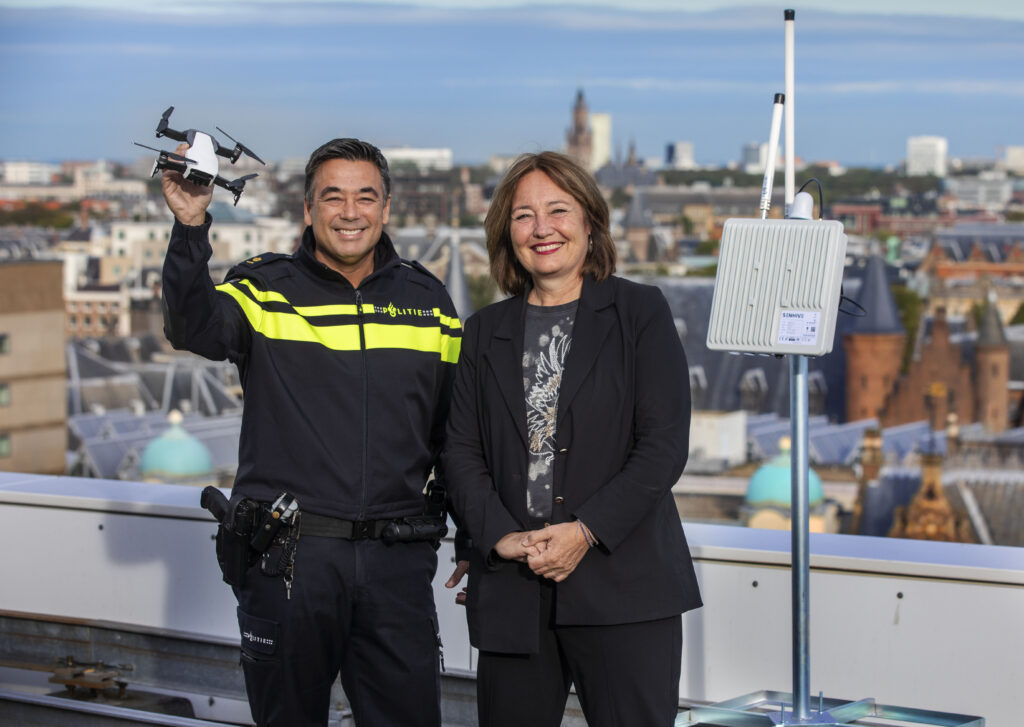The Municipality of The Hague and the police will continue to monitor drone flights over the city in the coming years. Over the course of a year, more than 11,600 drone movements were detected—exceeding expectations. This collaboration was established to gain insight into drone usage in The Hague. In addition to the number of flights, the type of drone and flight distance were also recorded. The pilot project will continue in the coming years to collect additional data.

Drone detection: from theory to practice
The municipality conducted this pilot project together with the police through their joint innovation hub, SHIELD during the period from September 2023 to September 2024.
“We are currently in a situation where there are many restrictions on paper, yet drones are still widely used. This research shows that drones are undeniably part of today’s urban environment. We aim to move toward a situation where useful drone flights can take place within the rules. Of course, safety and privacy remain top priorities,"said Deputy Mayor Saskia Bruines (Economic Development)."This is our first step toward shaping a future with drones in The Hague. We are in close contact with all relevant partners, including the Ministry of Infrastructure and Water Management.”
For the pilot, SHIELD used three sensors that detect drones by intercepting the radio signals between the drone operator and the drone itself. The system did not collect any personal data. The location and identity of the drone operator remained unknown. The goal of the study was not to enforce against illegal flights.
Key findings
- A total of 11,622 drone flights were recorded.
- Many flights took place in no-fly zones, which are designated by the national government. These include areas around ministries, royal palaces, and the port of Scheveningen.
- The popular DJI Mini series accounted for 73% of detections. This type of drone does not require a pilot certificate.
- Drones are used most frequently in spring and summer, with peaks during favorable weather conditions.
It is expected that the sensors did not detect all drones. This is due to signal interruptions caused by tall buildings. As a result, the actual number of flights is likely higher. Additionally, it is not known why the drones were flown or whether the operators had permission to fly in no-fly zones.
Next steps
The results provide sufficient reason to continue the research. SHIELD is doing so in collaboration with the Ministry of Infrastructure and Water Management, which is responsible for national drone policy. Since many drone operators do not hold a pilot certificate, raising awareness about the rules has become a new focus of the pilot. The project also explores how illegal drone flights can be effectively monitored and enforced.
The insights from this pilot contribute to safe and regulated drone use in The Hague.